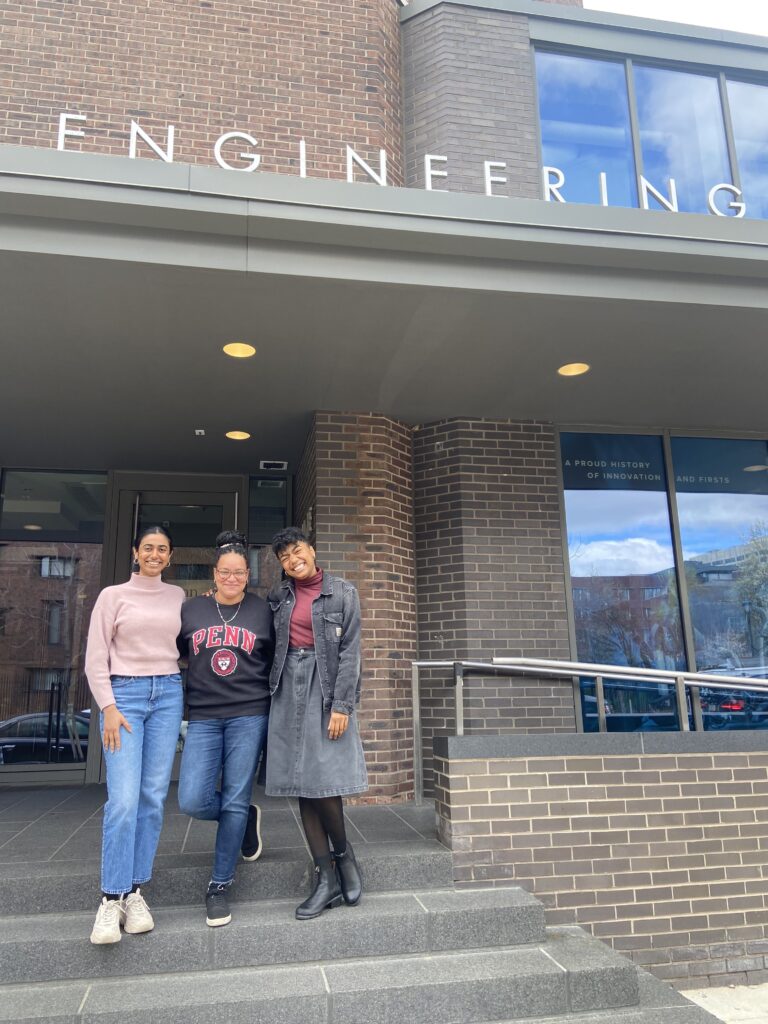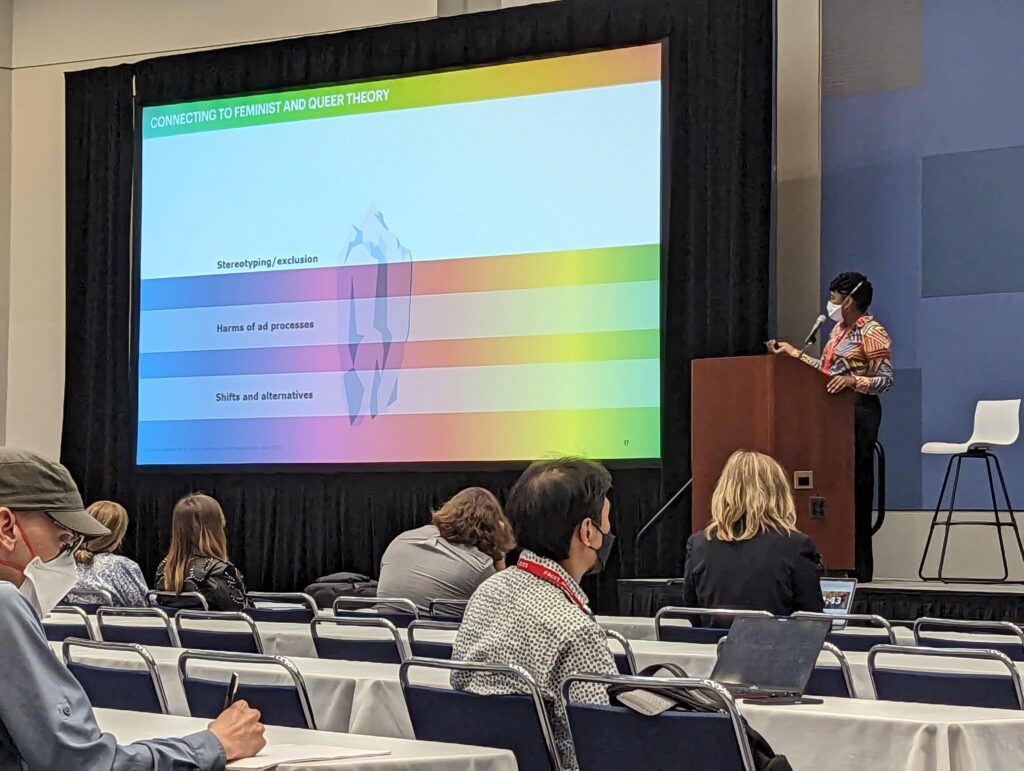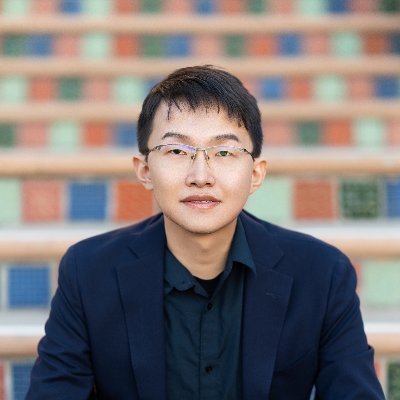
Four PhD students from Penn’s Human-Computer Interaction (HCI) and Natural Language Processing (NLP) groups have been awarded the prestigious NSF Graduate Research Fellowship Program (GRFP) for 2024. These awards recognize and support outstanding graduate students in STEM disciplines. Three of the awardees, Ro Encarnación, Hita Kambhamettu, and Princess Sampson, are pioneering research in HCI, while a fourth student, Andrew Zhu, has made significant strides in NLP.
During AI Month, the CIS Blog highlighted Andrew’s research and accomplishments in a previous article. For more details on Zhu’s awards, click here!
Here are their achievements and reflections on this milestone.
Ro Encarnación

Advised by Danaë Metaxa, Ro Encarnación has been focusing on community-engaged public interest technology policy and design. “I took a big risk leaving the workforce to pursue the kind of work I’m interested in. Receiving the award provided validation that I’m on the right track,” said Encarnación. They are currently working on a project under review on emergent auditing behavior in social media.
Metaxa praises Encarnación’s work, noting, “Ro’s recent work has studied how users interrogate the algorithmic systems they interact with in their everyday lives. Her awarded GRFP proposed to build systems for high schoolers and their families to navigate the high-stakes and unequal setting of high school selection. Ro’s experience as a TechCongress fellow positions her to produce impactful research.”
Hita Kambhamettu

Under the guidance of Andrew Head, Hita Kambhamettu is advancing research at the confluence of human-AI interaction and biomedical informatics. Reflecting on the fellowship, she shared, “When I verified that I had indeed received the fellowship, I was overcome with a profound sense of excitement and immense gratitude. This achievement is due to the steadfast support from my advisor, collaborators, peers, and family.”
Kambhamettu plans to develop intelligent systems that help patients make informed health decisions and create explainable machine learning methods for medical research. She recently completed a project introducing “traceable text” to enhance the understanding of AI-generated medical summaries. Head commended her contributions, saying, “Hita is designing human-AI interfaces to serve as just-in-time translators of health records. With the NSF fellowship, she will build on her strong research foundation to re-envision patients’ relationships with their health information.”
Princess Sampson

Princess Sampson, also advised by Danaë Metaxa, expressed their honor in receiving the NSF-GRFP alongside her peers. She highlighted the collective effort, “We formed a weekly check-in group, broke the application into distinct deliverables, and developed a timeline to hold each other accountable. One win would have been a win for all of us, but it’s a joy and a privilege to win together.”
Sampson aims to empower users, especially from marginalized communities, in their interactions with digital ad targeting systems. They are currently working on a system for collaborative, value-driven ad-blocking. Metaxa lauded her dedication, stating, “Princess has been working on tools for empowering users in the context of digital ad targeting systems. Her paper published in FAccT last year was very well-received, and I look forward to seeing the rest of her PhD develop.”
Advisor Reflections
Danaë Metaxa expressed immense pride in the students, saying, “All of us in the Penn HCI group are incredibly proud of our NSF GRFP awardees this year. Ro, Princess, and Hita are all founding members of the HCI group, our first cohort of students; it’s inspiring and affirming to see their success.”
Andrew Head shared similar sentiments about Kambhamettu’s achievements and future potential, “Hita is making great inroads in her research agenda. With the NSF fellowship, she will continue to advance her work and positively impact the field of biomedical informatics.”
These students’ successes highlight the collaborative and supportive environment at Penn HCI and NLP, paving the way for innovative research with real-world impact.
